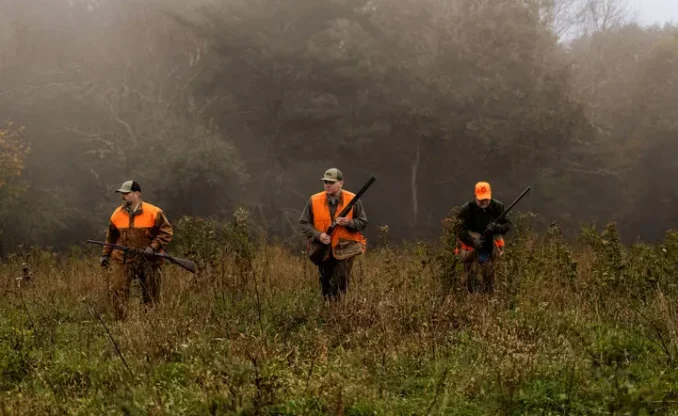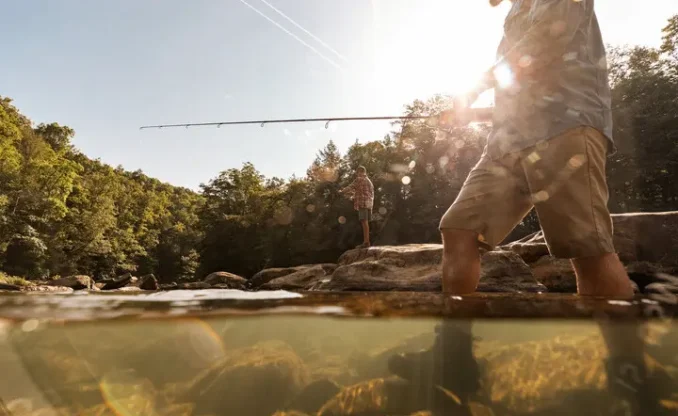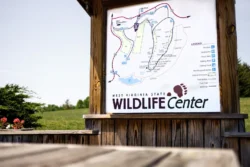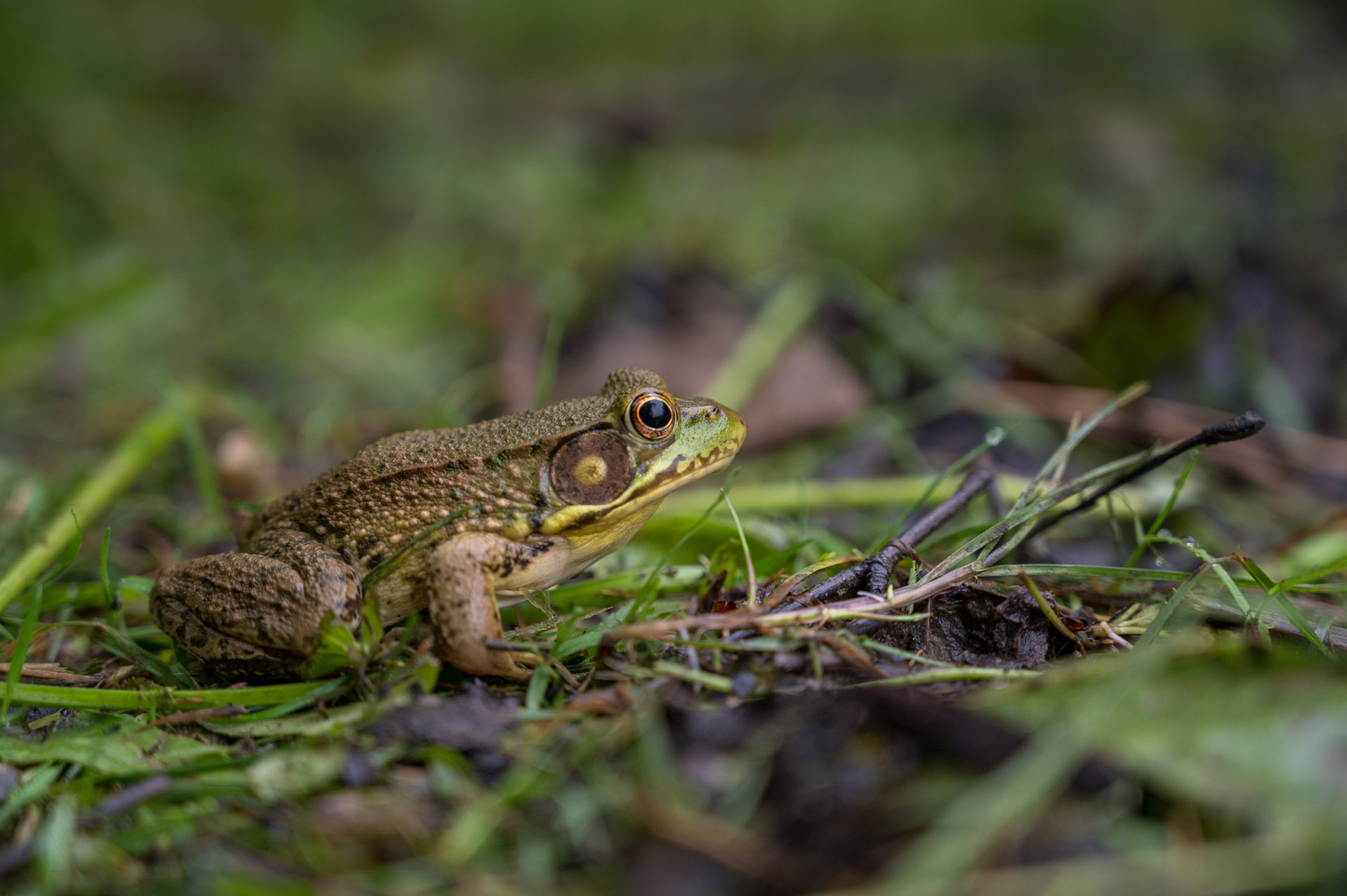New regulations making it unlawful to take or possess most native reptiles and amphibians for any reason are now in effect in West Virginia.
“Reptiles and amphibians are a valuable wildlife resource and unfortunately we’ve had several large poaching cases involving these animals,” said Kevin Oxenrider, amphibian and reptile program leader for the West Virginia Division of Natural Resources. “When it comes to the illegal wildlife trade, people don’t think about turtles, snakes and salamanders. But these animals call West Virginia home, so we want to make sure we’re doing everything we can to protect them so they can continue to serve their ecological function in the environment.”
Prohibited Native West Virginia Amphibian and Reptile Species
The new regulations prohibit the taking and possessing of 26 salamander species, 13 frog and toad species, six lizard species, 23 snake species and 12 turtle species.
Salamanders
- Streamside salamander
- Jefferson salamander
- Spotted salamander
- Marbled salamander
- Small-mouthed salamander
- Green salamander
- Eastern hellbender
- Cave salamander
- West Virginia spring salamander
- Four-toed salamander
- Common mudpuppy
- Red-spotted newt (eastern newt)
- Red-backed salamander
- White-spotted slimy salamander
- Northern ravine salamander
- Northern slimy salamander
- Valley and ridge salamander
- Cumberland plateau salamander
- Cheat Mountain salamander
- Yellow-spotted woodland salamander
- Cow Knob salamander
- Southern ravine salamander
- Shenandoah Mountain salamander
- Wehrle’s salamander
- Midland mud salamander
- Northern red salamander
Frogs and Toads
- Blanchard’s cricket frog
- Eastern cricket frog
- American toad
- Fowler’s toad
- Cope’s gray treefrog
- Gray treefrog
- Pickerel frog
- Northern leopard frog
- Wood frog
- Mountain chorus frog
- Spring peeper
- Upland chorus frog
- Eastern spadefoot
Lizards
- Eastern six-lined racerunner
- Northern coal skink
- Common five-lined skink
- Broad-headed skink
- Eastern fence lizard
- Little brown skink
Snakes
- Eastern copperhead
- Eastern wormsnake
- Northern black racer
- Timber rattlesnake
- Northern ring-necked snake
- Eastern hog-nosed snake
- Eastern kingsnake
- Eastern black kingsnake
- Eastern milksnake
- Common watersnake
- Northern rough greensnake
- Smooth greensnake
- Eastern ratsnake
- Red cornsnake
- Gray ratsnake
- Northern pinesnake
- Queen snake
- Dekay’s brownsnake
- Red-bellied snake
- Common ribbonsnake
- Eastern gartersnake
- Eastern smooth earthsnake
- Mountain earthsnake
Turtles
- Midland smooth softshell
- Eastern painted turtle
- Midland painted turtle
- Spotted turtle
- Wood turtle
- Northern map turtle
- Ouachita map turtle
- Eastern river cooter
- Northern red-bellied cooter
- Eastern musk turtle
- Woodland (eastern) box turtle
- Red-eared slider
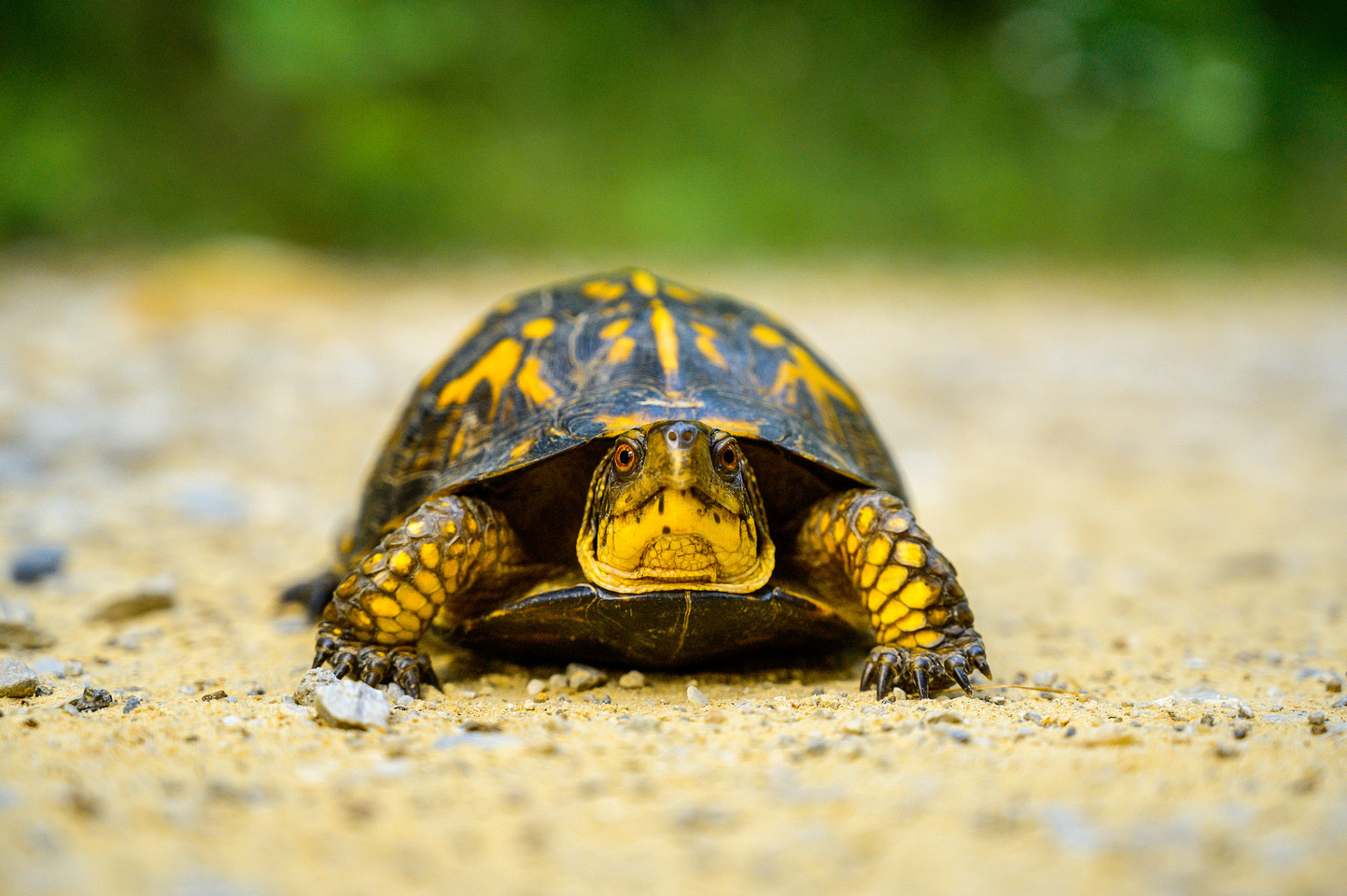
Exceptions to New Reptile and Amphibian Regulation
While the new regulations make it unlawful to take or possess native reptiles and amphibians, there are exceptions for individuals who have written permission from the WVDNR Wildlife Resources Chief. Individuals may also legally take and possess bullfrogs, green frogs, snapping turtles and eastern spiny softshell turtles.
“We know that these turtles and frogs are commonly collected for consumption, so we wanted to make sure there was an exception that allowed folks to still take them and eat them,” Oxenrider said.
Additionally, property owners, lessees or their representative may kill or relocate any snake within a place of residence, dwelling, structure used for domestic or commercial purposes, and outbuildings, including sheds and structures, gardens and fields used for agricultural crops and livestock.
Authorization to Possess Lawfully Obtained Reptiles or Amphibians
The new regulations also allow for individuals who came into possession of a prohibited native reptile or amphibian before March 23, 2021 to obtain an authorization letter from the WVDNR to lawfully maintain possession of the animal for the rest of its life. The deadline to submit a request for authorization was March 31, 2022.
Those with questions about the West Virginia Reptile and Amphibian Regulations should contact their local WVDNR district office or call 304-558-6200.

